Spot Therapy Hub, is a well-established practice that has been providing specialist speech therapy services across our beautiful clinics, in people’s homes, in schools and via Telehealth for over 20 years. Discover our neurodiversity-affirming Speech Pathology services in the Eastern Suburbs of Sydney and the Hills District.
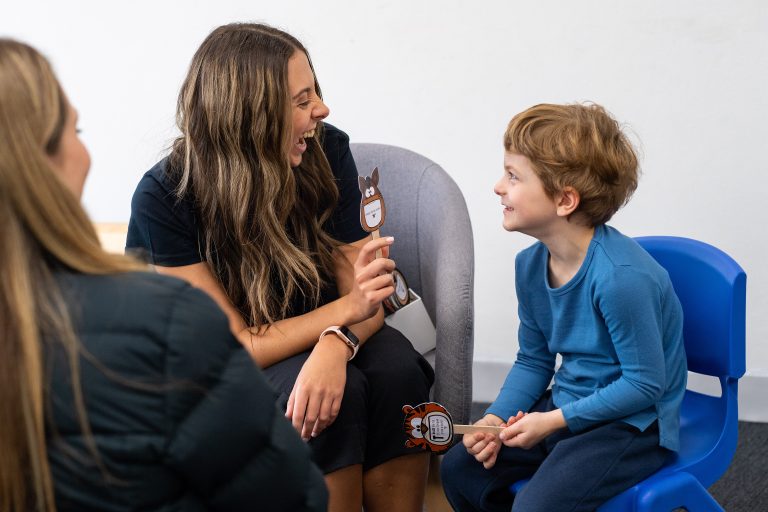
Speech Pathologists are health professionals who support people with communication and feeding, throughout the lifespan. At Spot we support children & adults in all core areas of practice:
Spot’s values are also reflected in our Special Clinical Interests:
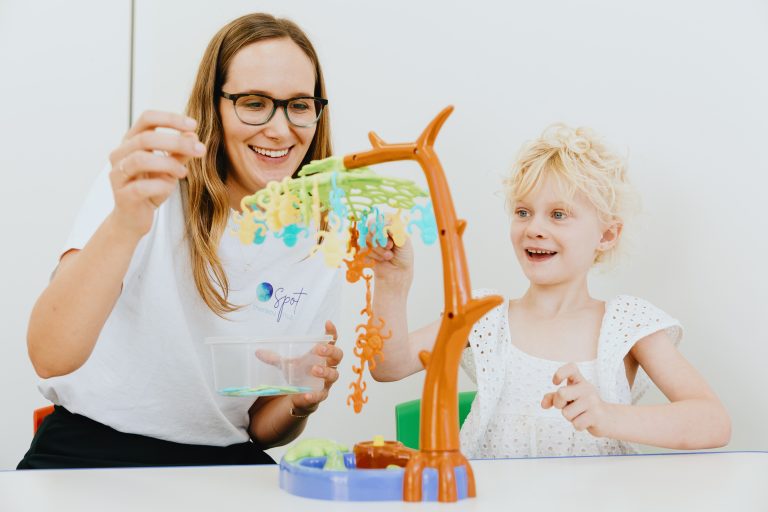
Speech refers to our ability to articulate speech sounds correctly when talking. Speech can be affected by phonological processing, oral-motor development & motor planning (praxis) and structural differences (e.g., cleft palate or tongue tie). We comprehensively assess client’s speech with a focus on differential diagnosis of the underlying cause of error patterns. Assessment results are then used to set goals in collaboration with our clients.

Receptive Language refers to understanding or comprehension, while Expressive Language is our ability to communicate our thoughts so our needs can be met, and to support social engagement. We use a variety of standardised and functional assessments to support goal setting, and our therapeutic approach is respectful of an individual’s identity. Language skills may be developed using speaking or AAC.
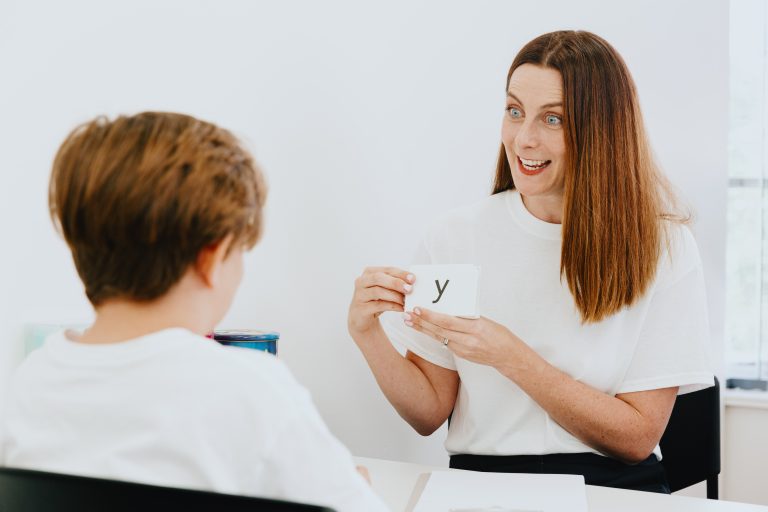
Literacy & Numeracy: Literacy refers to Reading, Spelling and Writing skills, while Numeracy refers to Mathematics. We complete thorough academic assessments which are complemented with evaluation of related developmental areas, including language, visual-motor integration and visual perception. This enables us to develop an individualised and evidence-based intervention plan.

Social Communication refers to the ability to communicate for the purposes of building and maintaining relationships. Communication includes verbal speech, gestures, sign, simple Augmentative and Alternative Communication (AAC) such as picture communication, and high-tech AAC. We support our clients to connect with their family and their wider community, in whatever manner is right for them.
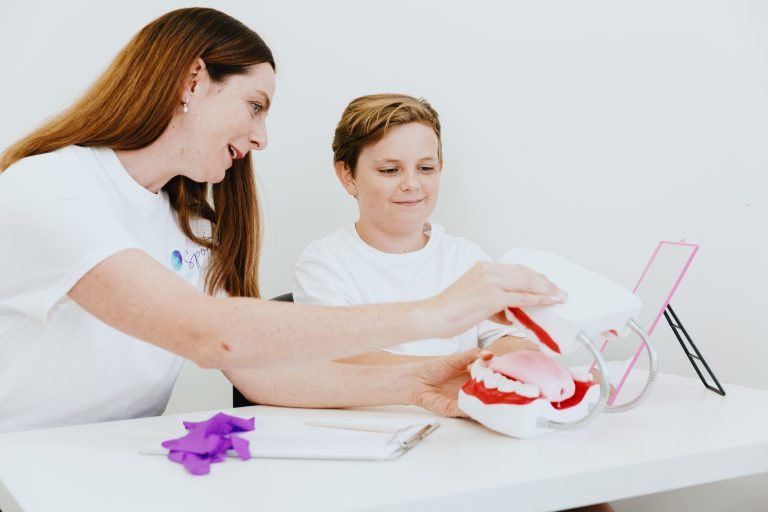
Oral-Motor development begins before birth, and we can assess this on the first day of life when an infant begins to feed. We assess babies, children and adults who have symptoms of Orofacial Myofunctional Disorder. Evaluation includes review of oral structures (tongue, lips, cheeks, palate, jaw) and function (breathing, chewing, swallowing, oral rest posture, saliva management, and speech). We develop treatment plans that are sequential, developmentally appropriate and focus on true treatment of underlying issues.
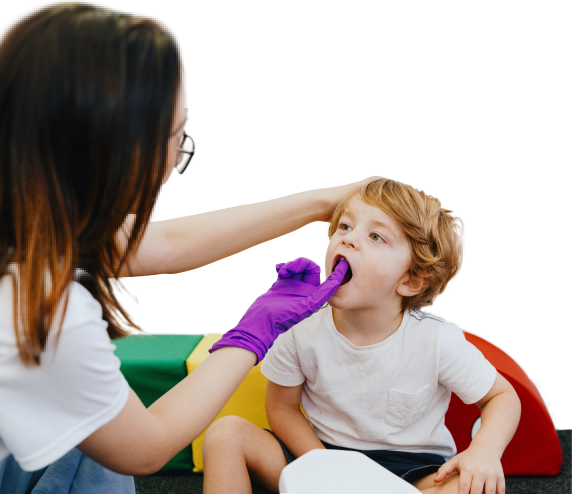
Feeding typically involves chewing and swallowing, and at Spot we evaluate clients while eating and drinking. We focus on accurate identification of underlying causes of fussy or problem feeding, which may be oral-motor or sensory based, and develop an individualised treatment plan from there.
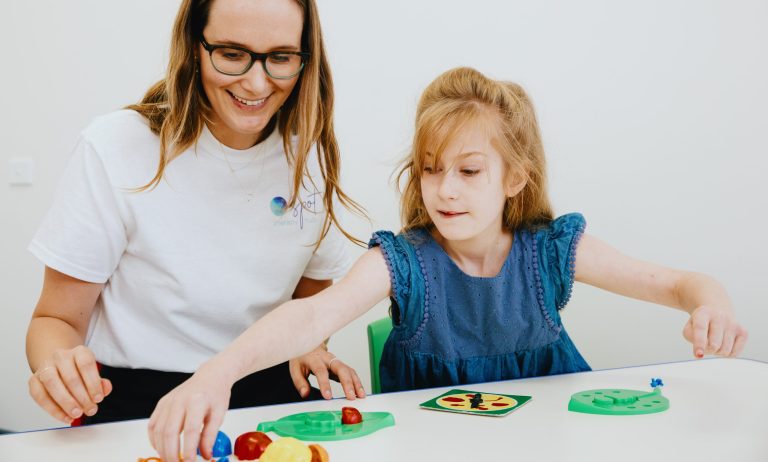
Fluency: Also referred to as Stuttering, assessment of fluency looks at the presence of repetitions, prolongations or blocks, which are observed during speech. Assessment involves gathering of a thorough case history, and rating of the nature and severity of stutters. A treatment plan will be designed based upon a client’s age, history & current communication needs.

Voice reflects the function of our larynx (voice box) and breath control. It is also influenced by our emotions. We evaluate all these components and develop and individualised treatment plan.
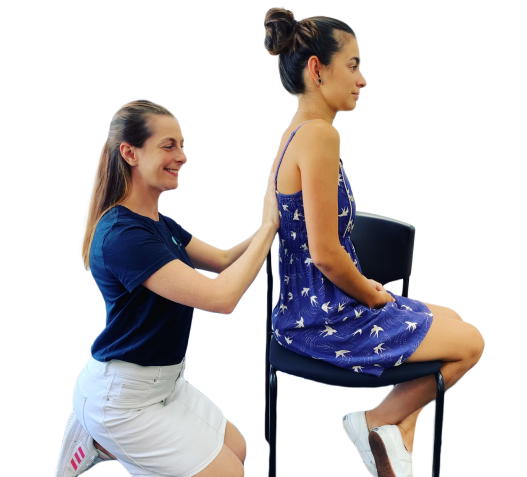
Breathing habits link directly to our sleep quality, and they also affect our speech and feeding. If we observe signs and symptoms of dysfunctional breathing in any Spot clients, we will discuss this so that everyone received holistic care that supports their development, physical and emotional well-being.


